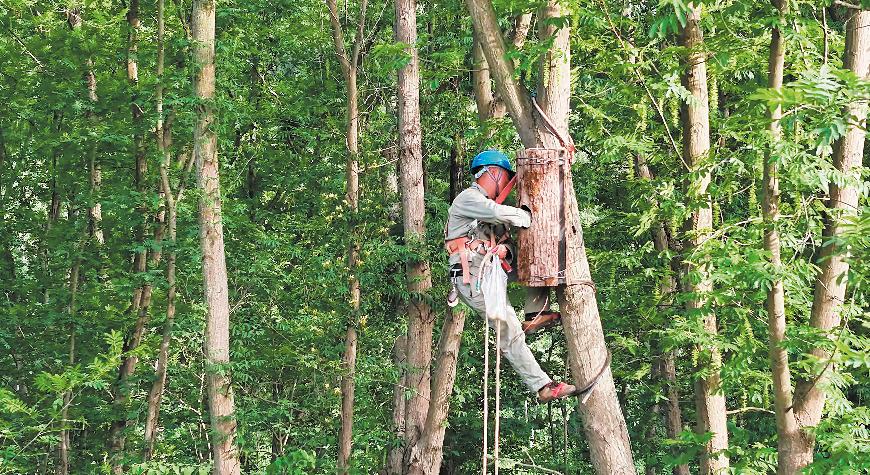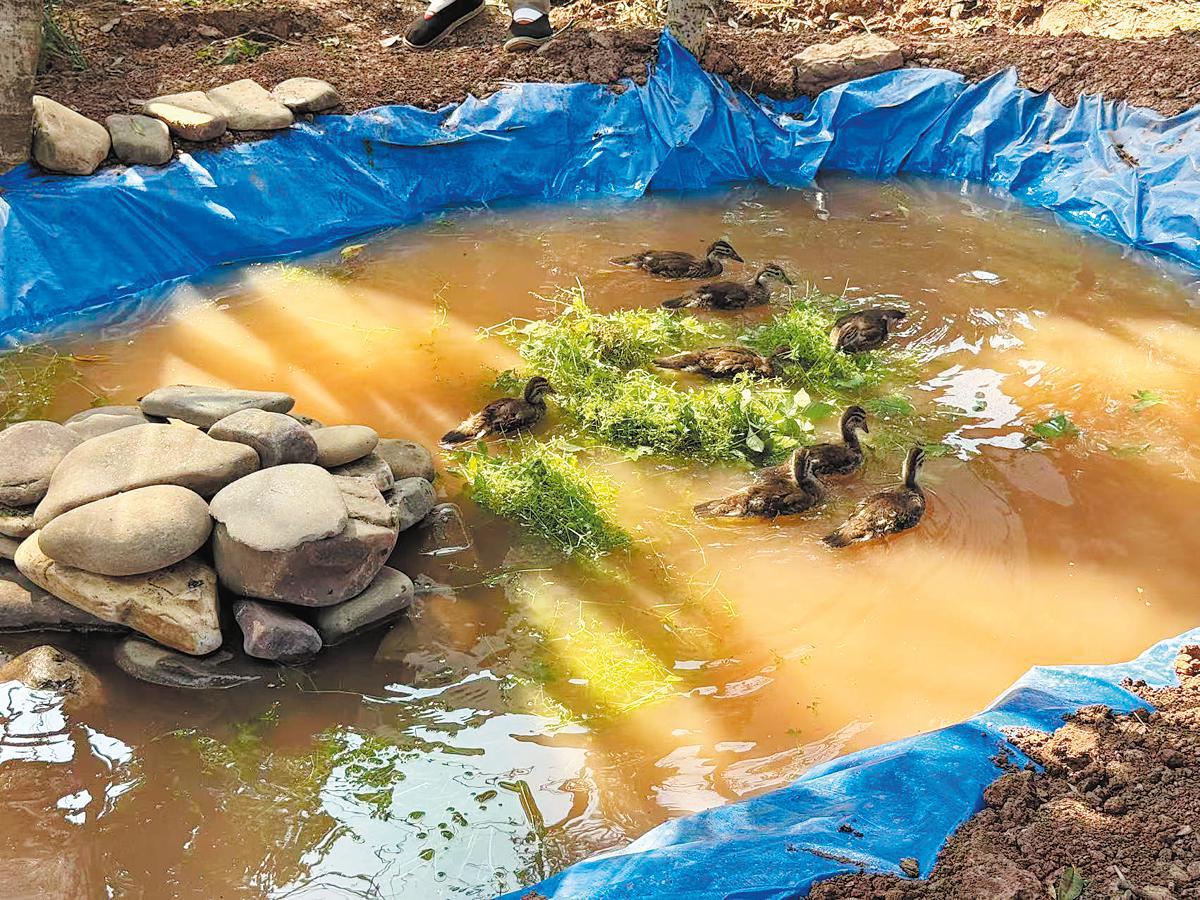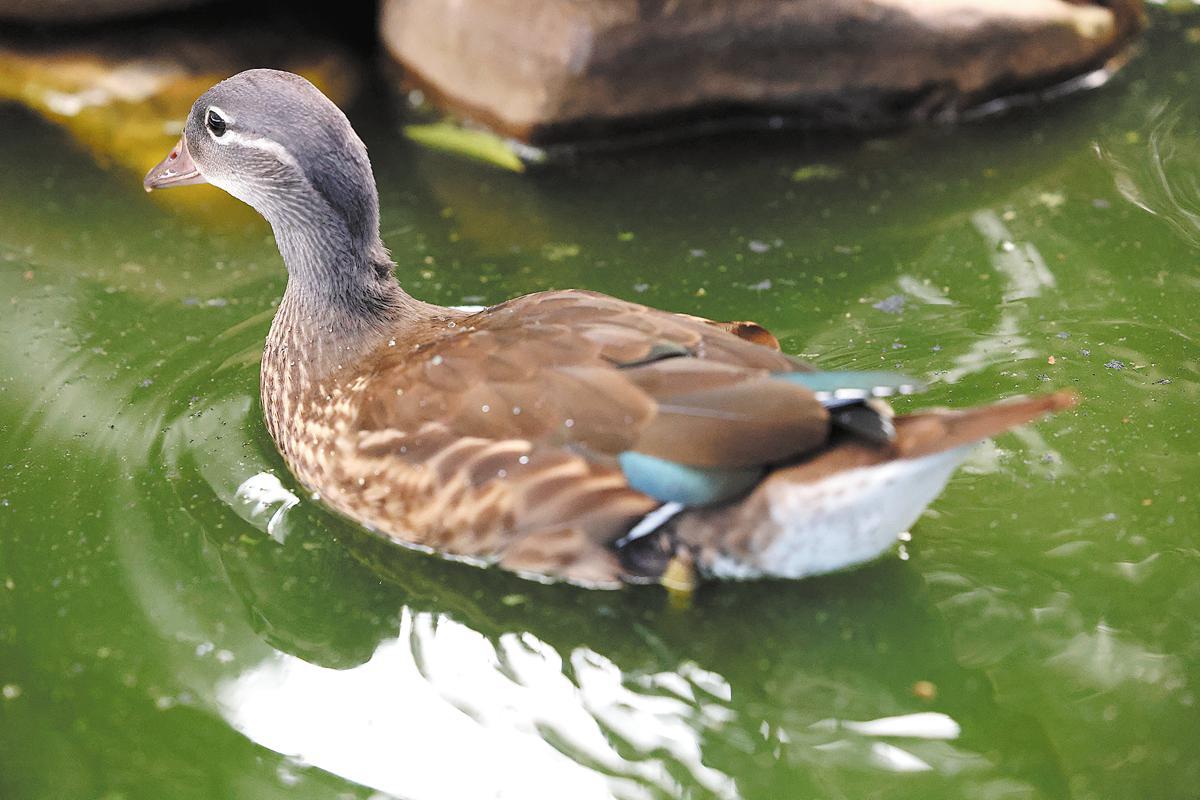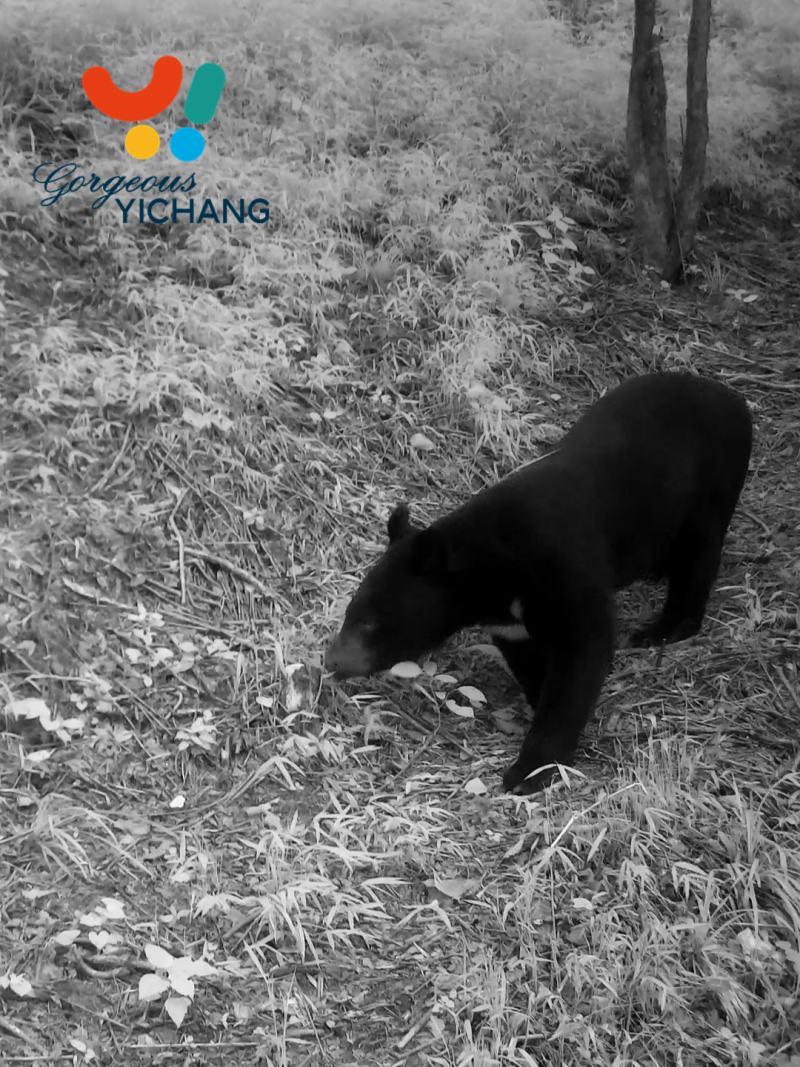'Mother' hen helps hatch 8 mandarin ducks in Hubei
By LIU KUN in Wuhan and CHEN MEILING | China Daily

A worker moves mandarin duck eggs from an artificial nest box at the Yuan'an Juhe National Wetland Park in Yuan'an county, Hubei province. [Photo provided to CHINA DAILY]
Thanks to a caring hen, eight mandarin ducklings have survived and are growing at a wetland park in Yuan'an county, Yichang city in Hubei province, after their mother left. Recently, in the waters of Dayan Forest Farm in the county, the ducklings were seen swimming, foraging and playing. They are expected to be released into the wild by the end of this month.
The story of the mandarin ducks is the first case of successful human-assisted incubation at the Yuan'an Juhe National Wetland Park.
Last winter, the park installed 26 artificial nest boxes in the forest, 20 of which were equipped with smart monitoring systems for staff to observe the breeding activities of birds via a mobile app.
In late March, the system showed that a wild mandarin duck had occupied a box and laid an egg, followed by seven more in the next few days. It began incubation on April 10.
Li Jie, who is in charge of the planning and construction department at the park, checked on them every day through the surveillance system. "Watching the mother mandarin duck carefully incubate her eggs filled my heart with anticipation for the new lives," she said.

One of the eight mandarin ducks swims in a pond at the park. [Photo provided to CHINA DAILY]
However, early on April 30, she noticed the mother duck had left to forage but never returned. "It may have met a natural predator," she said.
After consulting experts, they decided to move the eggs out and borrowed a hen from a farmer to incubate them. "The size of a mandarin duck's egg is similar to that of a chicken egg, so the hen, driven by its instinct to incubate, didn't refuse to do the job," said Jing Shunhua, deputy director of the wild animals and plants protection station in Yuan'an.
On May 12, eight healthy baby birds hatched. Because of the large temperature fluctuations during day and night, the park set aside a constant-temperature room to take care of them.
"Later, we placed an inflatable baby pool in the room and conducted daily water adaptation exercises," Jing said.
On June 12, the one-month-old ducklings began wilderness training in a simulated natural habitat at Dayan Forest Farm. Through intensive adaptive drills such as aquatic activities and wild foraging, their swimming speed, foodlocating ability (demonstrated by circling designated areas multiple times), and regulated routines (gathering on rocks in the pool at night) improved significantly, according to Jing.
"With an average weight of about 220 grams, they developed a solid foundation for survival in the wild," he said, adding that shortly after hatching, they flapped vigorously, brimming with energy.
 The ducks are ready to be released into the wild. [Photo provided to CHINA DAILY]
The ducks are ready to be released into the wild. [Photo provided to CHINA DAILY]
As they grew, their untamed nature became more apparent, though they remained notably affectionate toward long-term caretakers.
"The eight ducklings preferred moving together. In early training, they slept huddled on a man-made 'stone island' at the pool's center. Later, they delighted in bathing, gliding and hunting in the water — a charming spectacle."
Jing said the experts evaluated their growth and plan to release them later this month, adding that they believe the birds "came from and belong to nature, not the zoo".
Chen Yayun, office director of the county's forestry bureau, said the artificial nest boxes aim to provide a safe and hidden breeding space for migrant birds. They were installed at a height of between 3 to 5 meters in the forest and simulate tree holes.
More than 10 different species of birds have lived in the boxes, including owl and russet sparrow.
In recent years, large numbers of wild birds have migrated to Yuan'an to stay, nest and breed during autumn and winter.
The mandarin duck is a national second-class protected species. They have high ecological demands for their migratory habitats. In recent years, their numbers in Yuan'an have increased annually, according to local authorities.






